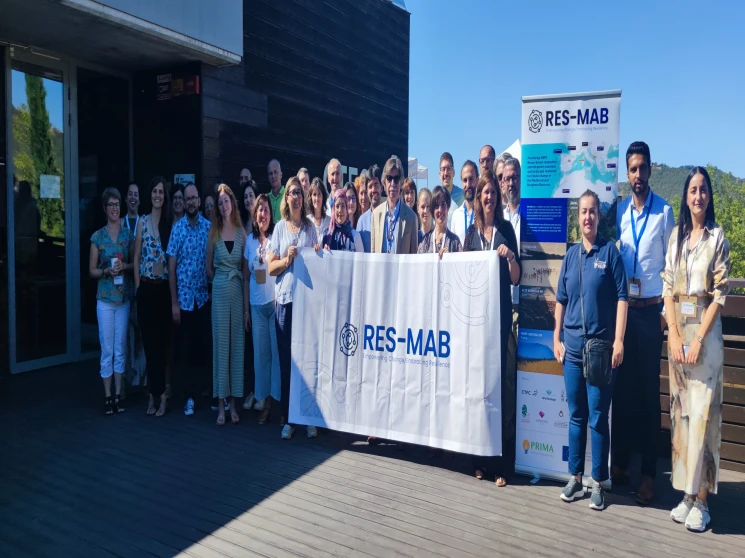


عربتك فارغة، يمكنك اضافة عناصر من خلال المتجر

This PRIMA project, focused on the
adaptation and mitigation solutions to face climate change in the Mediterranean
region brings together ten partners to create living labs to test and implement
WEFE solutions.
The ten partners of the RES-MAB
project have gathered in Solsona, Catalonia, at the headquarters of the Forest
Science and Technology Centre of Catalonia (CTFC) from July 22nd to 24th, 2024.
During the meeting, participants discussed the challenges posed by climate
change in the Mediterranean region, along with the consortium’s goal of
implementing innovative solutions in the participating Biosphere Reserves (BRs).
RES-MAB is an ambitious initiative
tackling climate change in the Mediterranean by focusing on UNESCO-designated
Biosphere Reserves, crucial for balancing human activity with nature
conservation. The project will establish seven BR demonstration sites, transforming
them into "living laboratories" to test and implement innovative
Water-Energy-Food-Ecosystems (WEFE) solutions. Adopting the WEFE Nexus
approach, RES-MAB aims to foster resilience and enhance climate adaptation.
“RES-MAB is a pioneering and
ambitious project within the PRIMA program that aims to provide solutions to
the needs of Mediterranean BR in the face of climate change. With the holistic
vision inherited from the WEFE approach, we want to develop a management model useful
to all Mediterranean BR while also developing new business models and innovative
market solutions suitable to the different demands the Mediterranean BR must
respond. To do so, the consortium will take into consideration the cultural and
ecologic aspects of the BR while still promoting the sustainable development of
their economy,” explains Roser Maneja, coordinator of the project and Deputy
Research director at the CTFC.
One of the central efforts of the
project includes the development of a WEFE Nexus Socioecological Modelling Tool
(WEFE-SEM Tool) to aid stakeholder decision-making, integrating this tool into
policies for sustained impact, and co-creating and deploying eight
climate-resilient WEFE solutions across the demonstration sites.
Other initiatives that will be launched
by the project include recovering ancestral cultivation terraces as well as
irrigation channels, or setting up a centre for food processing which will
bring new opportunities to the rural community who will learn about sustainable
production to achieve self-sufficiency.





